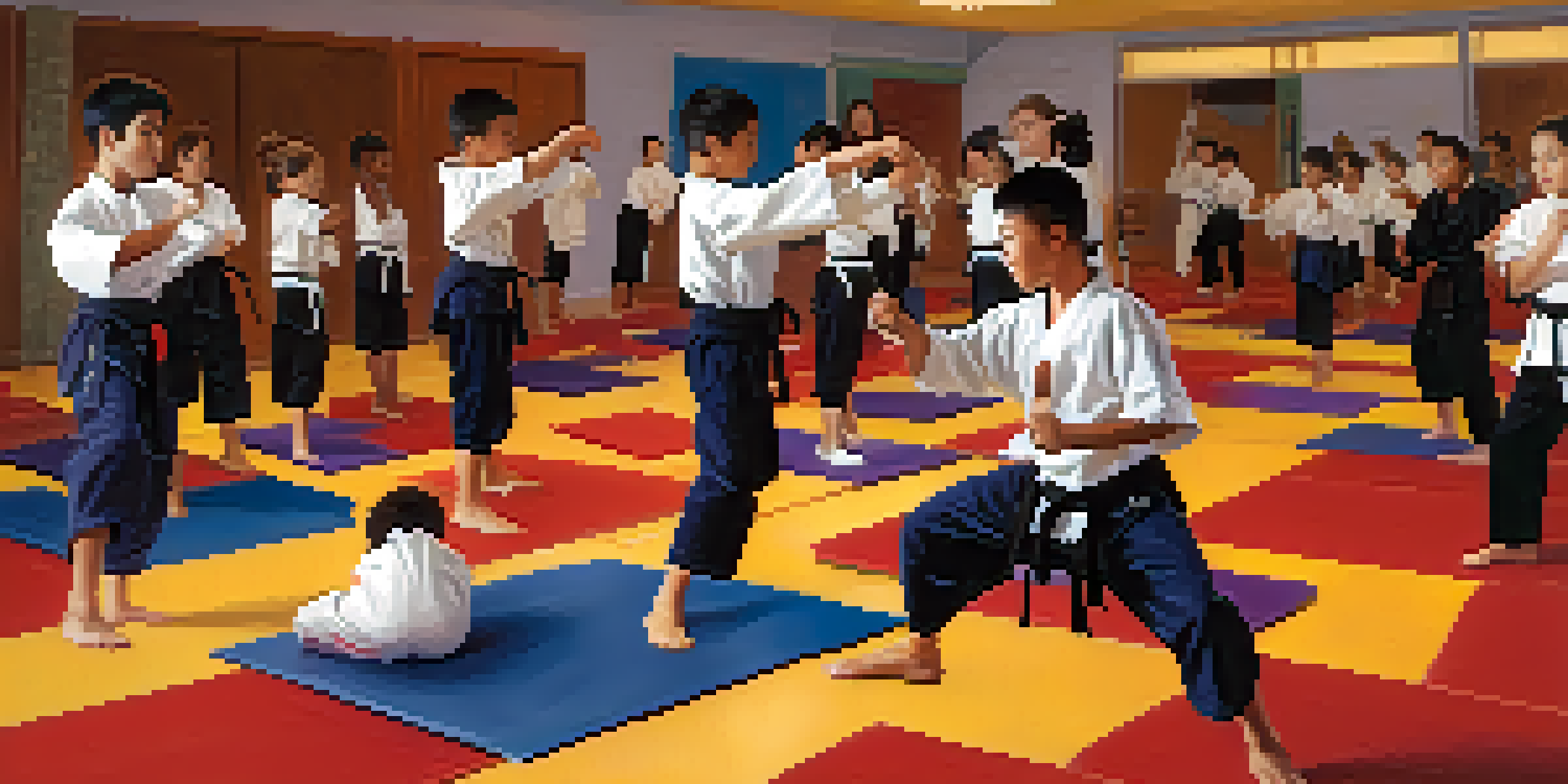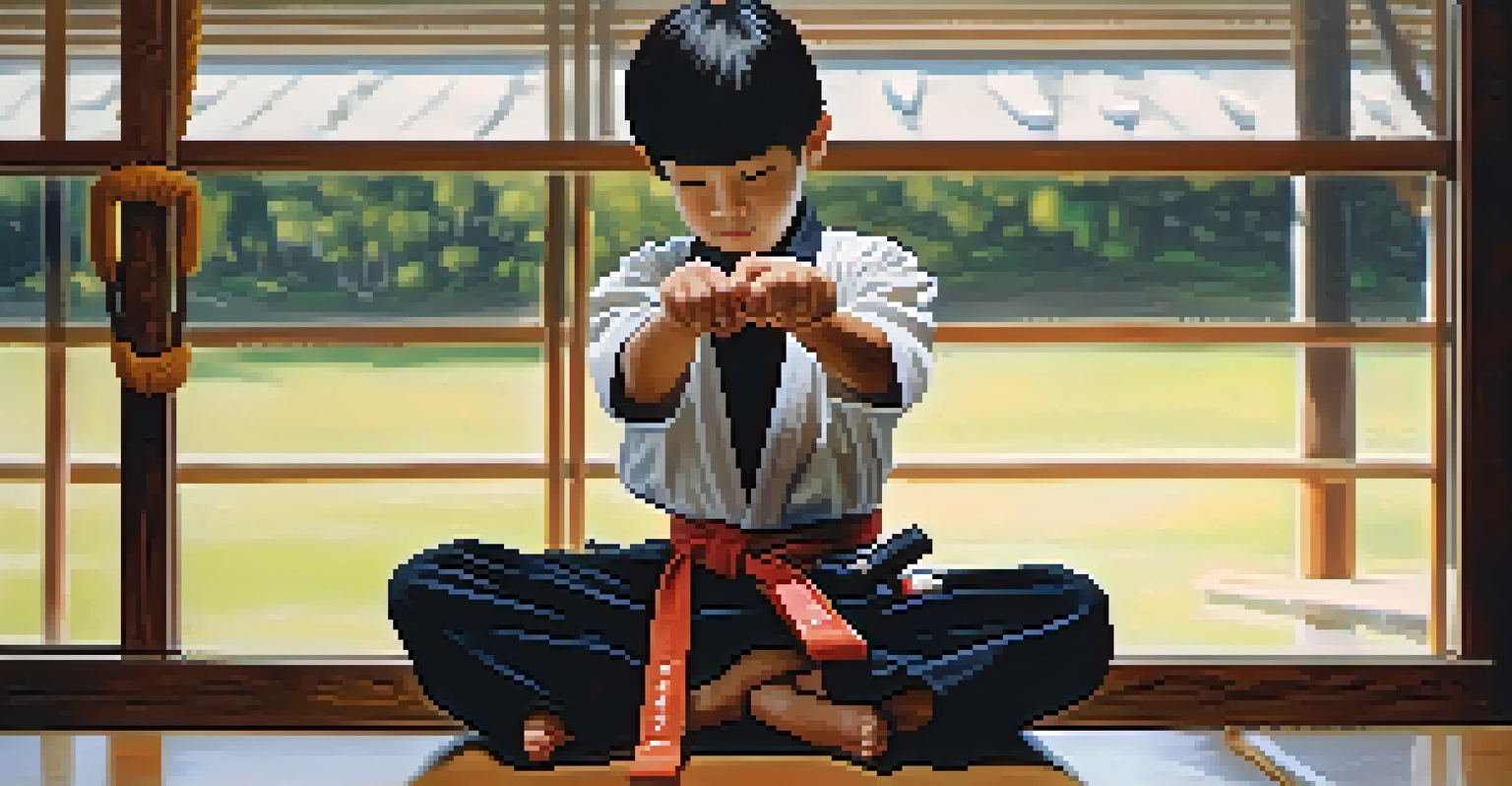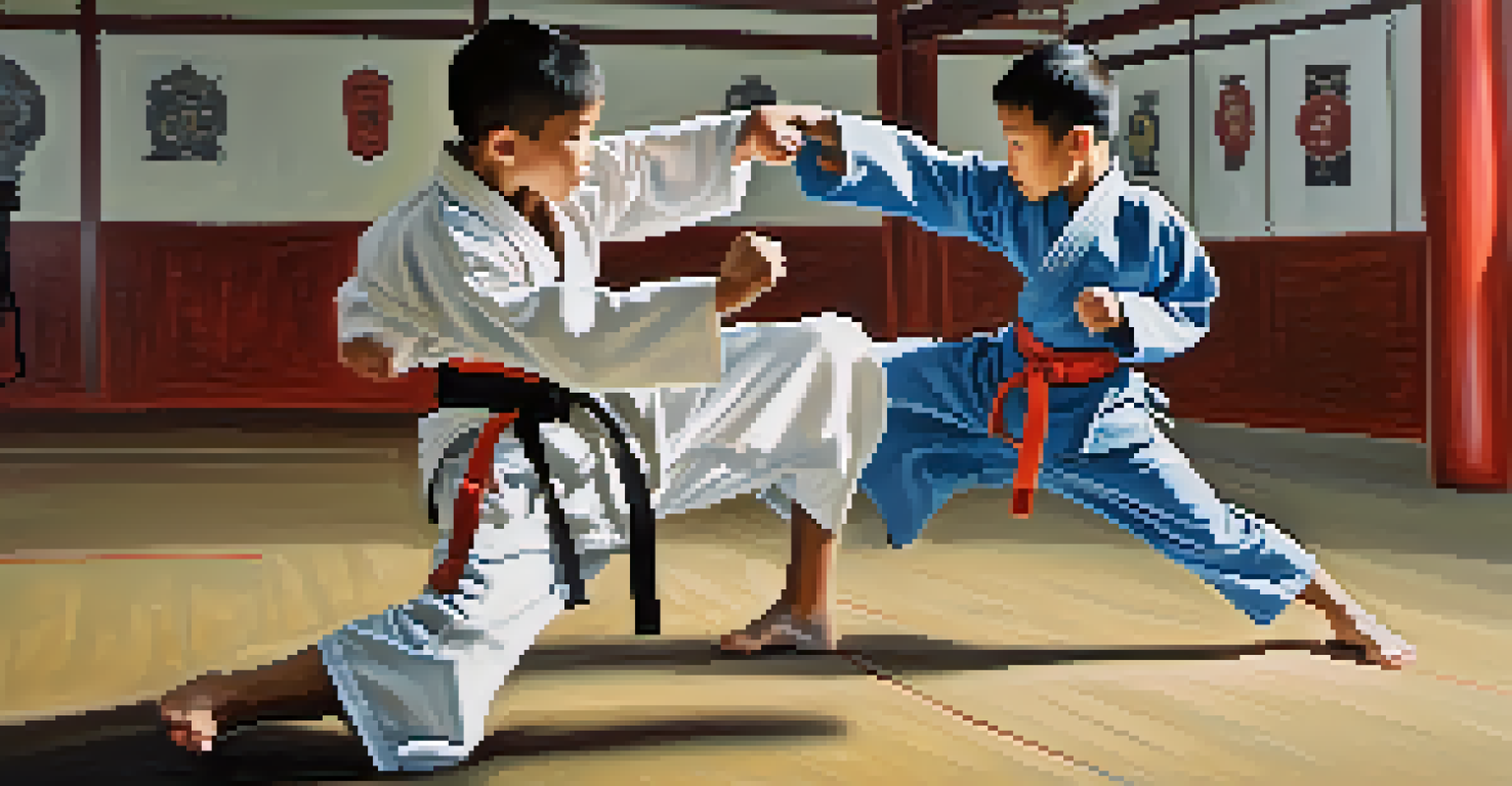Empowering At-Risk Youth: The Role of Martial Arts Programs

Understanding the Challenges Faced by At-Risk Youth
At-risk youth often face a multitude of challenges, from socioeconomic struggles to a lack of positive role models. These difficulties can lead to feelings of isolation, low self-esteem, and even involvement in risky behaviors. Understanding these challenges is crucial for developing effective programs aimed at supporting them.
The greatest glory in living lies not in never falling, but in rising every time we fall.
Many of these young individuals come from environments where violence or criminal activity is prevalent, which can create a cycle of despair. This environment can limit their opportunities for personal growth and development. By recognizing these barriers, we can better appreciate the potential martial arts has to make a significant impact.
Martial arts programs can serve as a safe space, providing not only physical training but also a sense of community that is often absent in their lives. This supportive environment can be the first step toward positive change.
How Martial Arts Build Confidence and Self-Discipline
One of the most profound benefits of martial arts training is the boost in self-confidence it provides. Each achievement, whether it’s mastering a new technique or earning a belt, helps youth recognize their capabilities. This newfound confidence can translate into other areas of their lives, helping them set and achieve personal goals.

In addition to confidence, martial arts instills a strong sense of self-discipline. Students learn that consistent practice and commitment are essential for improvement. This discipline can help at-risk youth develop better habits, not just in martial arts but also in their academic and personal lives.
Martial Arts Builds Confidence
Through achievements in training, at-risk youth gain self-confidence that empowers them in various life areas.
The combination of confidence and self-discipline equips these young individuals with the tools they need to navigate life’s challenges more effectively. They begin to see themselves as capable, which is a powerful shift in mindset.
Fostering Resilience Through Martial Arts Training
Resilience is the ability to bounce back from setbacks, and martial arts training fosters this essential trait. In martial arts, students often face challenges, whether it's sparring with a partner or pushing through a tough workout. Learning to cope with these challenges helps them build resilience that can be applied in real-world situations.
Success is not final, failure is not fatal: It is the courage to continue that counts.
Through training, at-risk youth learn that failure is a part of growth. They come to understand that each fall is an opportunity to get back up and try again, both on and off the mat. This perspective can help them approach life’s obstacles with a more positive and determined attitude.
By cultivating resilience, martial arts programs empower youth to face their personal struggles with strength and perseverance. They become better equipped to handle stressors in their lives, whether academic pressures or familial issues.
Creating a Sense of Belonging and Community
Many at-risk youth feel isolated or disconnected from their peers, which can lead to negative behaviors. Martial arts programs provide a welcoming environment where they can form friendships and support networks. This sense of belonging is crucial for their emotional wellbeing and personal development.
In martial arts classes, students work together, encouraging one another and celebrating each other’s achievements. This camaraderie helps to build trust and respect among participants, creating a tight-knit community. Such relationships can be particularly impactful for youth who may not have supportive family structures.
Fostering Resilience in Youth
Martial arts training helps students develop resilience by teaching them to overcome challenges and view failures as opportunities for growth.
Feeling connected to a community can be transformative. It helps youth realize they are not alone in their struggles and that they have people who care about their success and growth.
Teaching Life Skills Through Martial Arts
Martial arts is not just about physical techniques; it teaches valuable life skills that extend beyond the dojo. Skills such as teamwork, leadership, and conflict resolution are integral parts of training. These lessons help at-risk youth navigate their social environments more effectively.
For instance, when students work in pairs or groups, they learn to communicate and collaborate with others. They also gain insights into managing conflicts peacefully, which can be particularly beneficial in high-stress situations they may encounter outside the dojo.
By acquiring these life skills, at-risk youth become more adaptable and capable of handling various life challenges. This preparation can lead to better decision-making and healthier relationships.
Encouraging Physical Fitness and Healthy Living
Physical fitness is a vital component of overall well-being, and martial arts programs promote an active lifestyle. Engaging in regular physical activity helps at-risk youth combat health issues related to sedentary habits, such as obesity and low energy levels. This focus on fitness can have lasting effects on their health.
Moreover, martial arts training emphasizes the importance of nutrition and self-care. Instructors often educate students about healthy eating habits and the benefits of maintaining a balanced lifestyle. This knowledge empowers youth to make better choices regarding their health and wellness.
Creating Community Connections
Martial arts programs provide a supportive environment where at-risk youth can build friendships and a sense of belonging.
As they become more physically fit, youth often experience improved mental health as well. Exercise releases endorphins, which can alleviate symptoms of anxiety and depression, contributing to a more positive outlook on life.
Real-Life Success Stories from Martial Arts Programs
Numerous success stories have emerged from martial arts programs dedicated to at-risk youth. Many participants have transformed their lives, finding purpose and direction through their training. These stories illustrate the profound impact that martial arts can have on personal growth and development.
For example, a once troubled teen might enter a martial arts program seeking an outlet for frustration but leaves with a renewed sense of self and aspirations for the future. The discipline and confidence gained from training can help them pursue educational opportunities or even careers they never thought possible.

These success stories serve as inspiration for both the youth involved and the communities supporting them. They highlight the potential for change and the positive ripple effect that martial arts programs can create in the lives of at-risk youth.